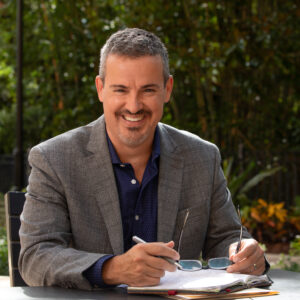The day before my mother’s memorial service, I tried to learn how to chant El Maley Rachamim, God Full of Compassion, one of the most chilling, comforting, and essential parts of a traditional Jewish funeral and burial.
*
El Maley Rachamim, God Full of Compassion
God who is full of compassion [rachamim] and dwells on high, provide a true rest on the wings of the Divine Presence [Shekinah] amongst the holy and pure ones who shine as brightly as the brilliance of the sky to the soul of Shulamith bat Ya’akov v’Sarah/Shirley daughter of Eddie and Sarah, who has gone on to her eternity. The Garden of Eden will be her resting place. We beseech the Merciful One to shade her forever with divine wings, and to bind her soul up in the bonds of life. The Lord is her heritage, and she shall rest peacefully on her bed. And let us say, Amen.
*
It’s not the words so much that do it for me. Wings of the Divine Presence. Garden of Eden. Soul. These words do not transport me to the presence of place, creature, essence. It’s the musical phrasing and tone of a cantor’s or rabbi’s voice. It’s her posture as she chants. These express the gravity of the moment and say to me, wake up, pay attention, this is serious, this is real, this is irreversible.
The words I could say. I have no trouble with the Hebrew. But I was going to be fudging the chant, the melody. Not to worry, my wife says. Other than the two of us, no one will know how this prayer should be chanted.
*
There would be a few Jews at the memorial service—my brothers, my kids, my grandkids. But for the most part Judaism—its rituals and beliefs—doesn’t live in them.
Throughout her adult life, my mother served in many leadership roles at her Reform congregation, including as chair of the ritual committee. She even led shiva calls. But we didn’t sit shiva for her. Shiva: seven days of mourning during which time members of the community visit the mourner’s home for a memorial service and, with food provided by the guests, a little nosh. And there was no k’riyah, ritual tearing of a ribbon that would be pinned to the mourner’s clothing. We covered no mirrors. We, her surviving sons, did not sit on low stools close to the ground. We were not accompanied, at the end of shiva, by a friend or rabbi as we left the mourner’s house for the first time since our mother’s passing, taking our first steps back in the world. Like her parents and her husband, my father, before her, she chose to be cremated.
*
Your loved one—my mother—is gone. But compassion—one of the attributes of God, indeed, one of the names of God—is still here. El Maley Rachamim—an afterlife fantasy—is intended to comfort the mourner. As is the character known as Divine Presence, Merciful One, Lord, God–—the One who with Her wing will shade the deceased in an apparently sunny place. These words offer me little comfort.
Mother is gone, but compassion is still here. “[T]his encircling compassion,” Brian Volck calls it, rachamim, in his as-of-yet unpublished poem “A Goy’s Guide to TANAKH Hebrew: Rachamim.” Tanakh is the acronym for Torah (The Five Books of Moses), which with Nevi’im (Prophets), and Ketuvim (Writings), are the three major parts that make up the Hebrew Bible.
this encircling compassion, evoking what a mother tenders the wailing child newly emerged from the warmth of her womb
Rachamim is related to rechem, the Hebrew word for womb. Hence, the metaphor.
This world, this very world, as alive in Volck’s poem as it is off the page or screen, the world where one who has transgressed may grovel for pardon, where “pity,” writes Volck, may be “grudgingly bestowed on the despondent”—this actual world suggests an (if not “the”) other world. There, I now see, thanks to Volck’s poem, my mother, a child newly emerged from the womb of the world, encircled by Compassion. That image, that story does comfort me. For all I know, this world and this world alone is the other world.
*
Compassion, writes Volck,
springs from sympathies found not in the head nor, perhaps, the heart, but from stirrings deep in the body’s obscurer recesses.
*
Rachamim, compassion, writes Alan Morinis in Everyday Holiness, “is a deep emotional feeling arising out of identification with the other that seeks a concrete expression.” Volck’s stanza evokes all three components of compassion: identification with the other, deep feeling that arises from that identification, and action. A mother feels an almost indescribable closeness to her just born child. Barely but definitely separated, one from the other, the newborn’s wail rends the mother’s heart as if she were the one wailing. In response, she acts. Encircling the child in her arms is the concrete expression of her compassion.
According to Jewish mystics, writes Morinis, compassion is “[o]ne of the ten elements through which the world was created.” Compassion “appears as a fundamental feature of the way in which reality has been constructed, of the way in which God runs the world.”
Compassion: God’s creation.
*
Jewish funerals and burials traditionally take place as soon as possible following death, typically within a day or two, unless that day is a Saturday. Jewish funerals are not held on Shabbat. We held our mother’s memorial service on a Saturday about a month after she passed. That’s when most of the family—my brothers and I along with our spouses, five of the grandchildren and two of five great grandchildren—could be there. That’s how my mother would have wanted it—not to inconvenience anyone. Her rabbi of many years was not able to attend. That’s how I wound up officiating. Living in two worlds, Jewish and not-so-Jewish, I insisted that the service begin as close to the end of Shabbat as possible. In Cherry Hill, N.J., Shabbat ended at 5:34 p.m. that day. We began the memorial service at 5:30.
*
I was born with Endocardial Fibroelastosis, a rare heart disorder. Well into my adult life—even into my sixties—I was told that my infant heart couldn’t withstand too much crying. So, mother told me, to prevent me from crying, I was held almost all of the time by her.
Mother wailed day and night over the final months of her life. Hearing her broke my heart. I tried to console her—with words, with touch. She was inconsolable.
*
I chanted, imperfectly, El Maley Rachamim. Three months after the memorial service, Brian Volck’s poem drew me back into mother’s arms and, I can only imagine, drew mother into my arms.
Richard Chess has published four books of poetry, the most recent of which is Love Nailed to the Doorpost. Professor emeritus from UNC Asheville, where he directed the Center for Jewish Studies for 30 years, Chess serves on the boards of Yetzirah: A Hearth for Jewish Poetry and Black Mountain College Museum + Arts Center, where he co-directs its Faith in Arts project. You can find him at www.richardchess.com .





